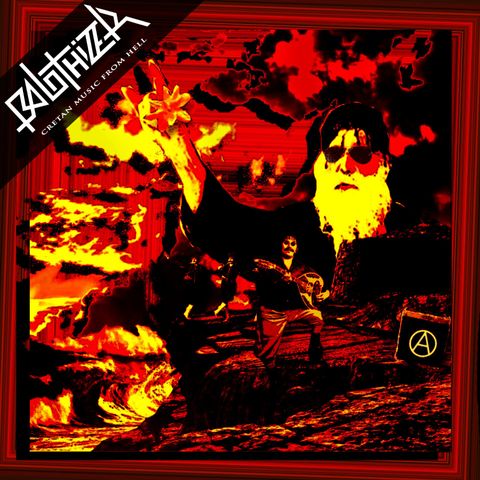Balothizer - Cretan Music from Hell
Crete’s musical tradition can with no doubt be described as prosperous and vibrant. Prosperous because it is overwhelmed with a variety of musical timbres; and vibrant, because it still continues to frame the every day life of its residents. Cretan history is engraved in its musical tradition.
Crete has suffered many conquerors; each leaving behind them a pebble, which in time, became part of the island's musical mosaic. The Ancient Greeks left their love for nature and pagan traditions, the Byzantines left introversion and medieval elements; the Venetians left their refined tastes, the Moors left behind them a pirate mentality and the Ottomans left an oriental flavour. After centuries of conquests, the inhabitants of the island developed their own unique musical character - carved from the roughness of rocky mountains, the energy of sea waves, the belligerent mood of the guerrilla, the sorrow and pain of romantic encounters and a Pagan's love of nature. In addition to this unique musical character, the Cretan People also displayed their tremendous fighting spirit by defending their beloved island against the threat of fascism during WWII. The sentiments of anti fascism still live large in the Cretan Spirit. This constantly evolving blend of cultures, over a period of 5000 years, gave birth to the instrument that is pivotal to the music that is so typical of this region;
The Cretan Lute: A steel string bass Mandola played with a highly percussive strumming style. During the 1970's, the musicians of Crete established a trend of combining Cretan lute with valve amplification, and as a consequence this highly aggressive and distinctly resonant sound was born. The very fibre and make up of Cretan culture has so much in common with the modern sentiments of Punk & Rock'n'Roll that it became an irresistible temptation to this multifarious trio of musicians.
So much so that it resulted in the ferocious and psychedelic lament that is 'Cretan Music from Hell'

